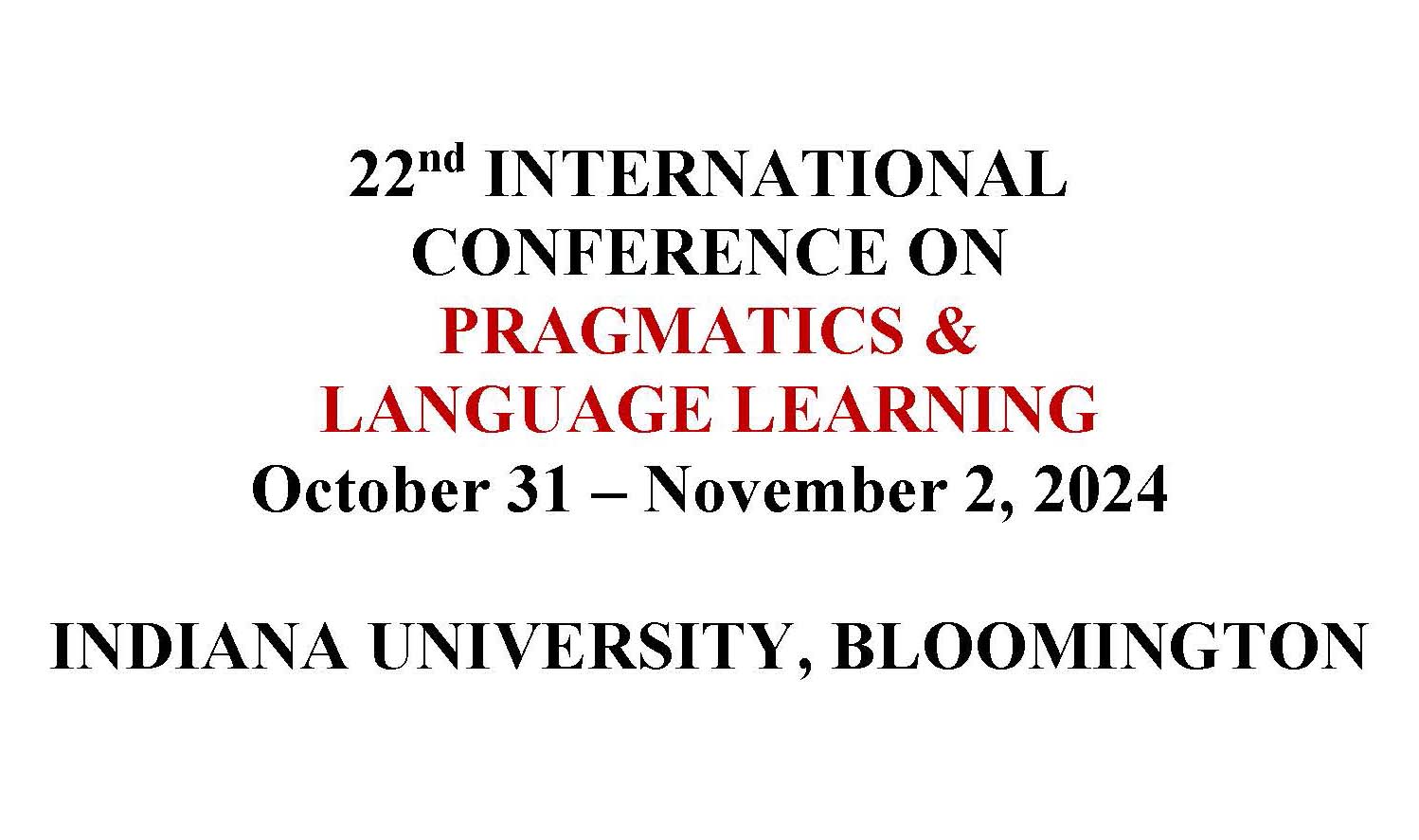Upcoming conference at Indiana University, Bloomington:
Pragmatics and Language Learning, October 31 - November 2, 2024
Keynote Speakers
From Replication to Innovation: Research Design in L2 Pragmatics
Kathleen Bardovi-Harlig, Indiana Uninversity
Research design continues to be an important issue in L2 pragmatics research. This plenary examines the relationship of research design to research questions in a field that values both spontaneous conversation and experimental control. It also explores the unique role of replication in L2 pragmatics research and the role of methodological innovation as new topics and areas of inquiry are addressed in L2 pragmatics research.
Getting Serious about Joking Around: Key insights from L2 Humor Research
Rachel L. Shively, Illinois State University
Humor is a common feature of everyday interactions among friends, work colleagues, and classmates. While amusement is at the core, humor can simultaneously fulfill many other interpersonal goals such as displaying affiliation, creating rapport, and exercising social control. Humor is thought to be universal, but what people joke about, how they signal that they are joking, and when, where, and with whom they joke can vary cross-culturally. Further, in intercultural interactions, the background information necessary to understand and appreciate humor may not be shared by humorists and their interlocutors. For these and other reasons, humor can be challenging to successfully comprehend and produce in an additional language (L2). At the same time, previous research indicates that L2 speakers at all levels draw creatively on their linguistic repertoire to engage in humor in a variety of social, educational, and work-related contexts and for a range of interpersonal functions (e.g., Bell & Pomerantz, 2019). This presentation will begin by highlighting key questions that scholarship on L2 humor has addressed and then discuss what research has uncovered about these critical issues, foregrounding recent empirical, methodological, and theoretical advances. I will conclude by arguing for the value of taking humor seriously and suggesting ways in which future research can contribute to our understanding of L2 humor and its role in language learning and teaching.


